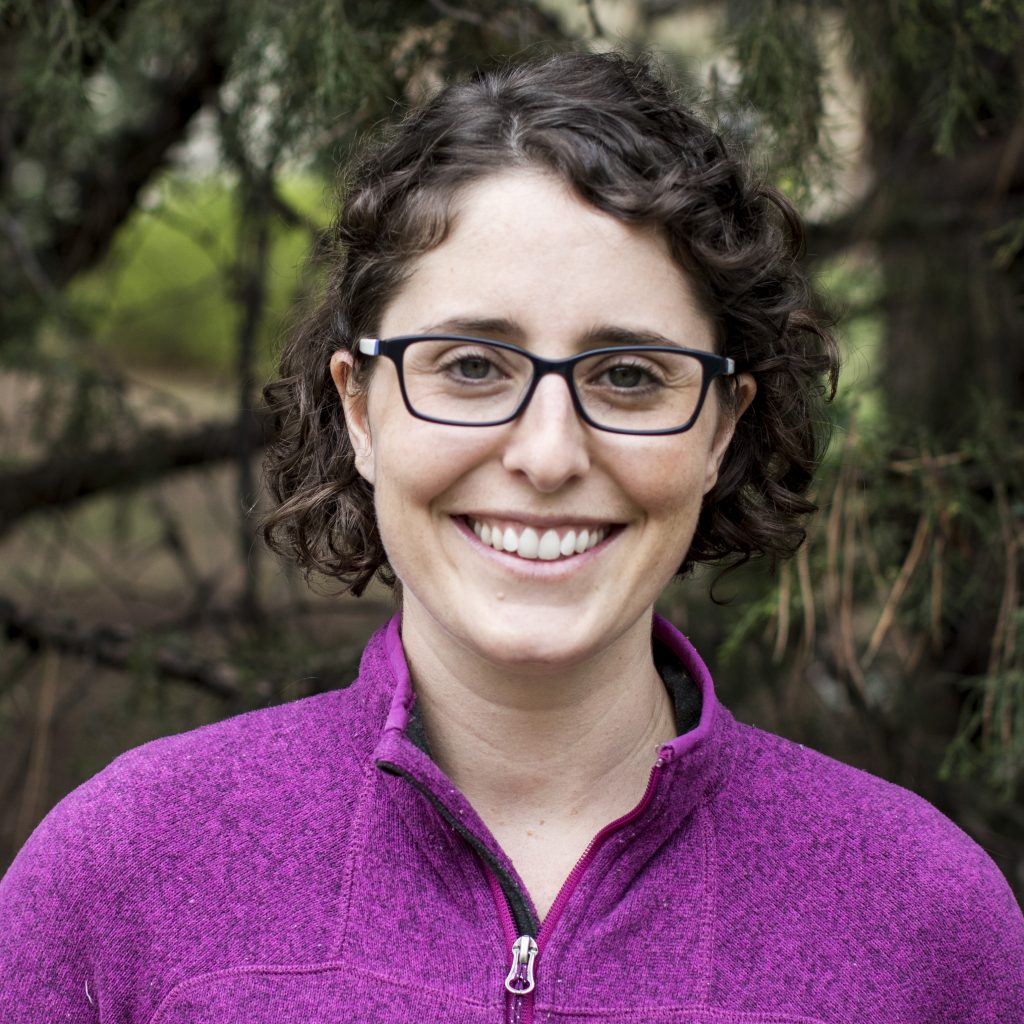The Team
We are a group of scholars, including undergraduates, Master’s, and PhD students, post-doctoral researchers, and faculty, who are interested in global environmental governance for the conservation of biodiversity.
Who We Are
The team is the heart of CEE.
Each iteration has brought together people from different career stages, institutions, countries, and disciplines. CEE has involved 46 researchers, from 5 countries, and 19 institutions. Team members have been undergraduate, Masters, and PhD students; post-doctoral researchers; and faculty. Some people participated in one CEE; others have participated in all of them. Some team members have taken CEE and made it their own. See for example, Presence2Influence.
Each team develops its own vibe, but all teams have given us joy. There is an excitement in doing CEE, a sense of shared adventure. Often the most memorable event is something the team experienced together, in or outside of the meeting venue.
We acknowledge all team members for their work and contributions to our thinking about CEE, and we name them on individual meeting pages. We also acknowledge the early critical contributions made by our friends and colleagues Pete Brosius and Ken MacDonald. Thanks to both imagining this type of collaboration would be possible and for leading us to Barcelona.
We are the current project leads. We have been available, willing, and able to attend three or more CEEs and have contributed to the grant writing and organization required to get large groups of people to international destinations and to coordinate their work before, during, and after the events. We identify ourselves to take responsibility for the views expressed on this site; any errors or omissions are ours alone.
Gallery
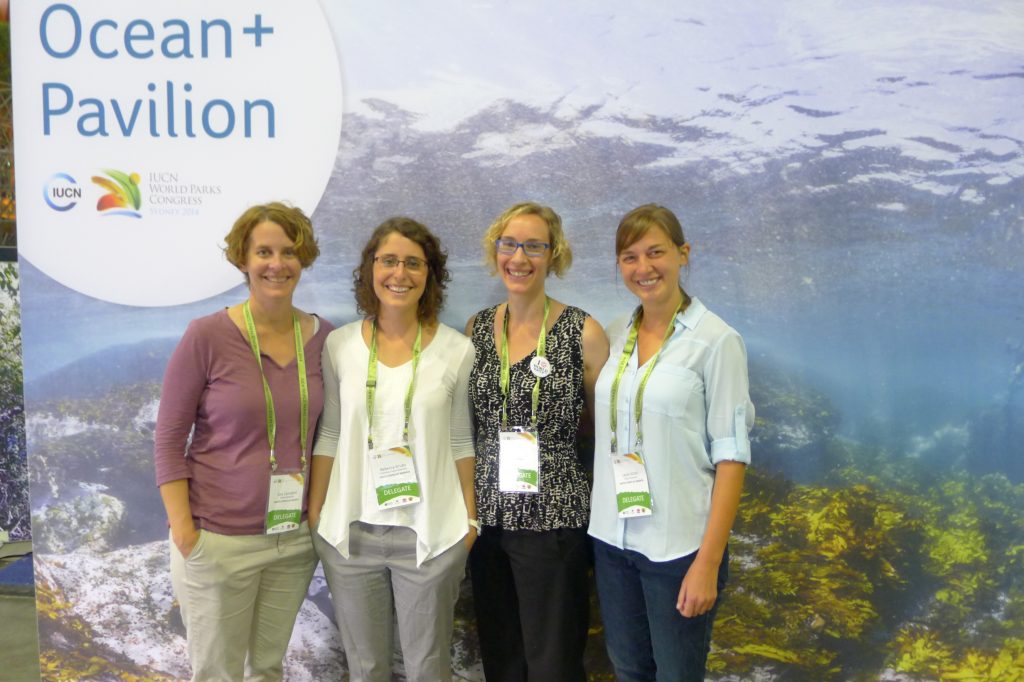
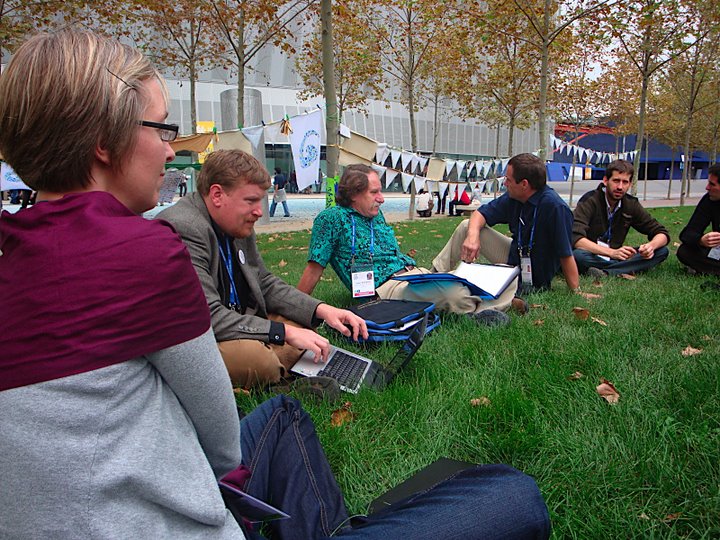
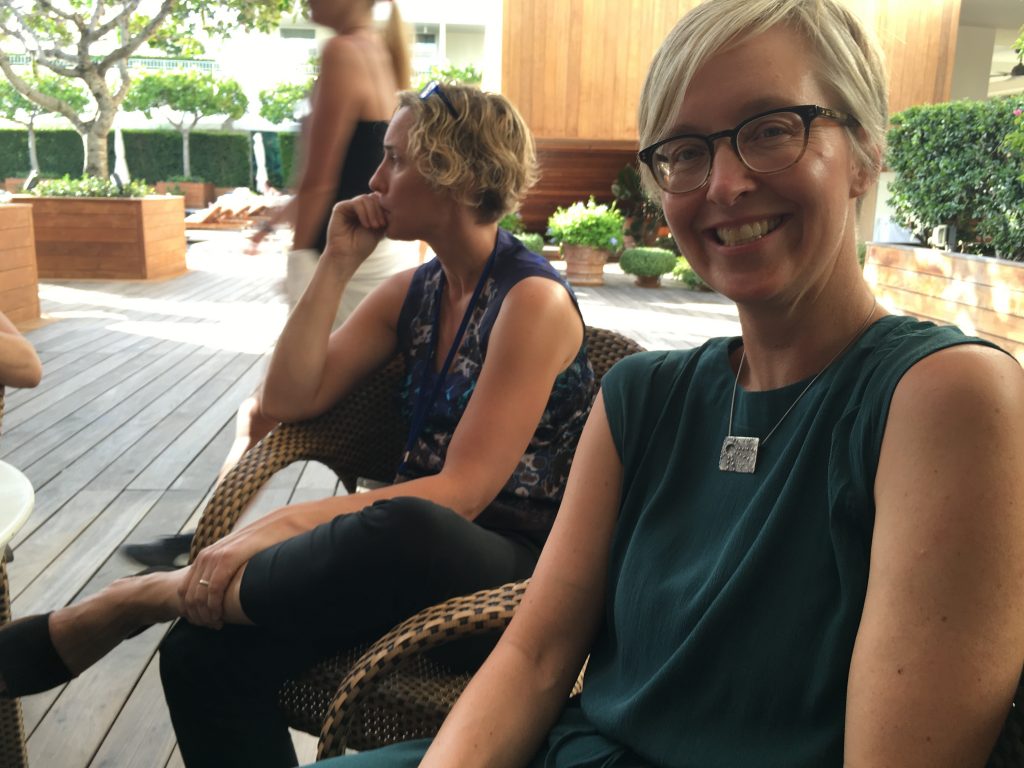

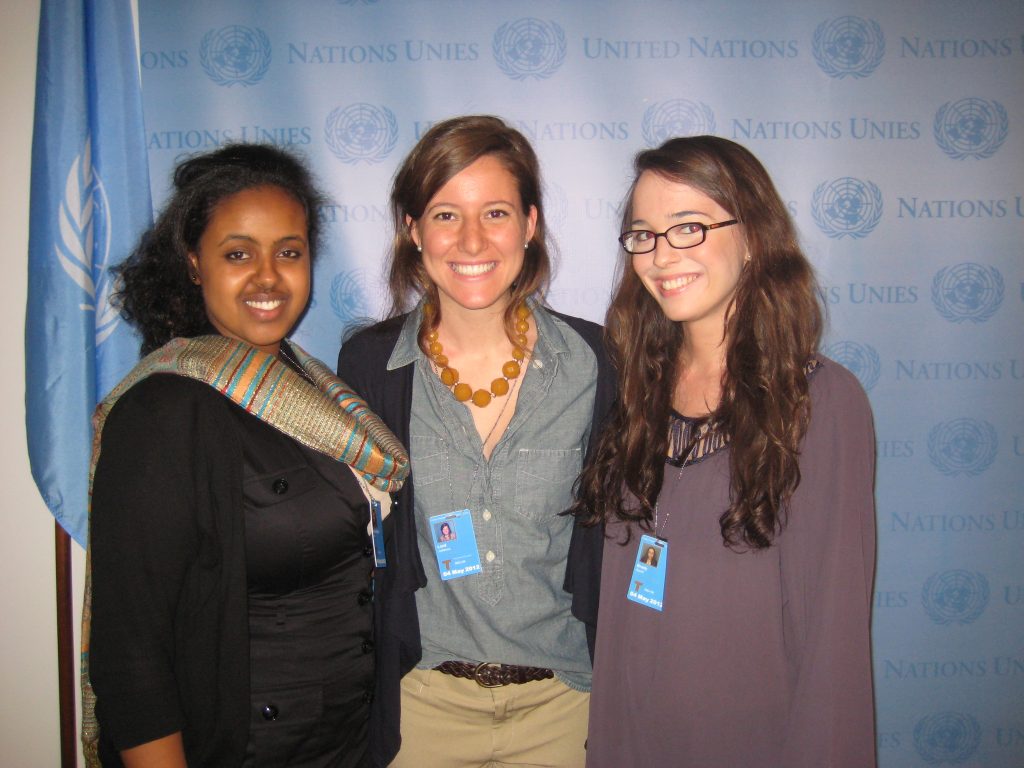
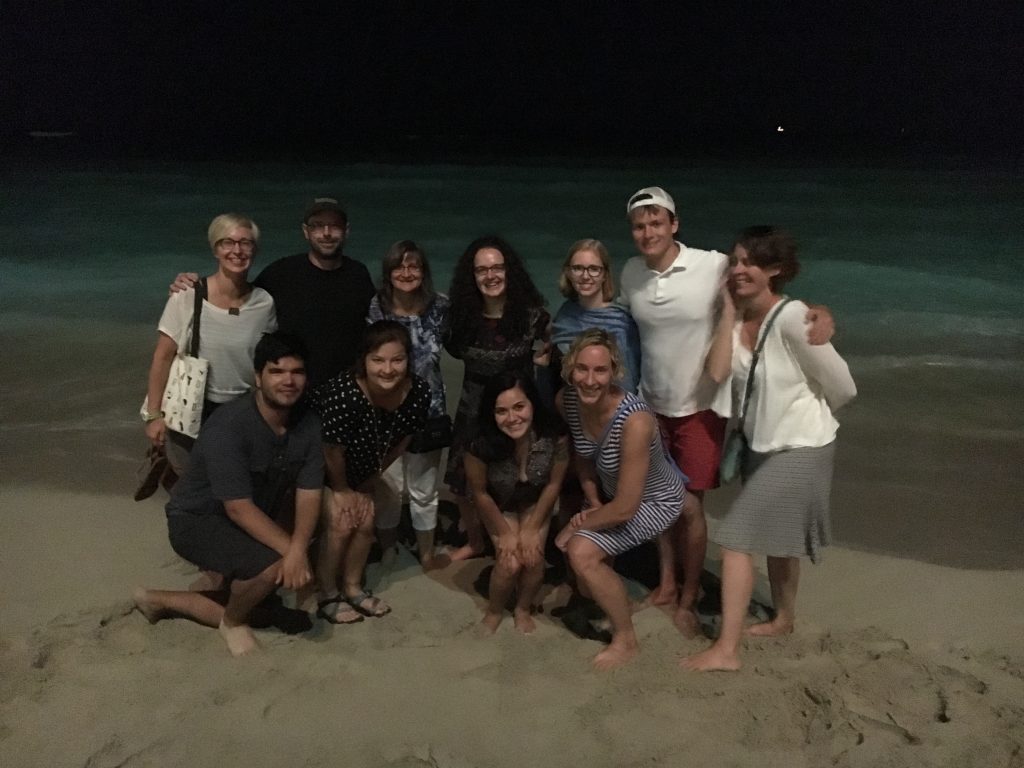
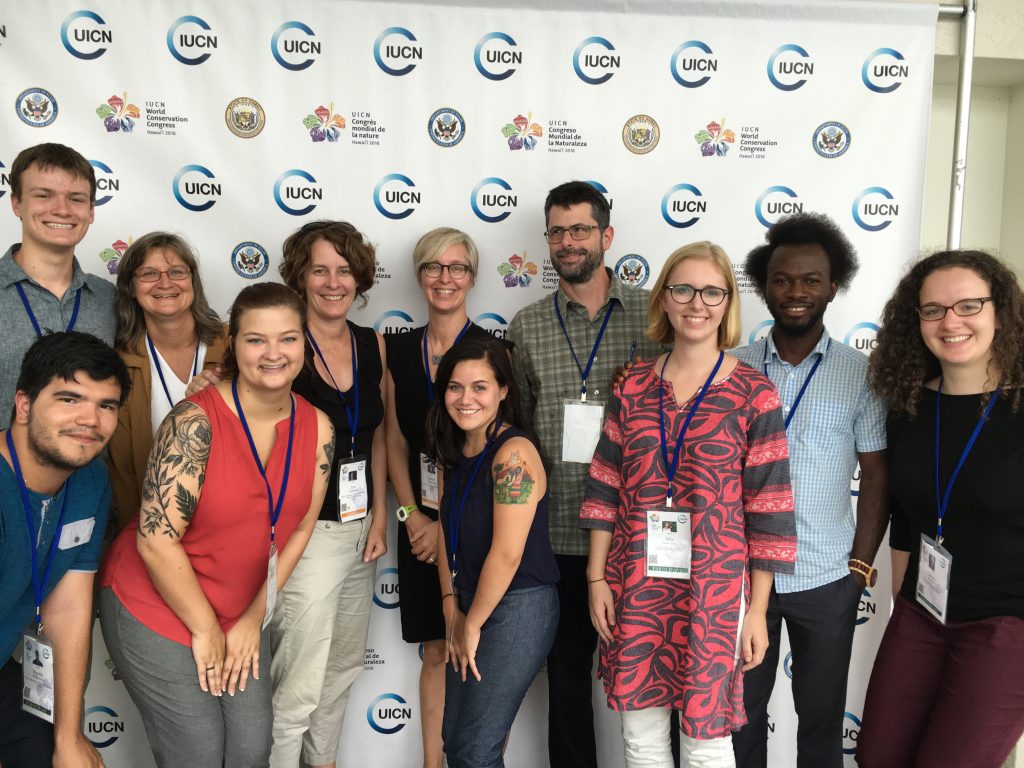
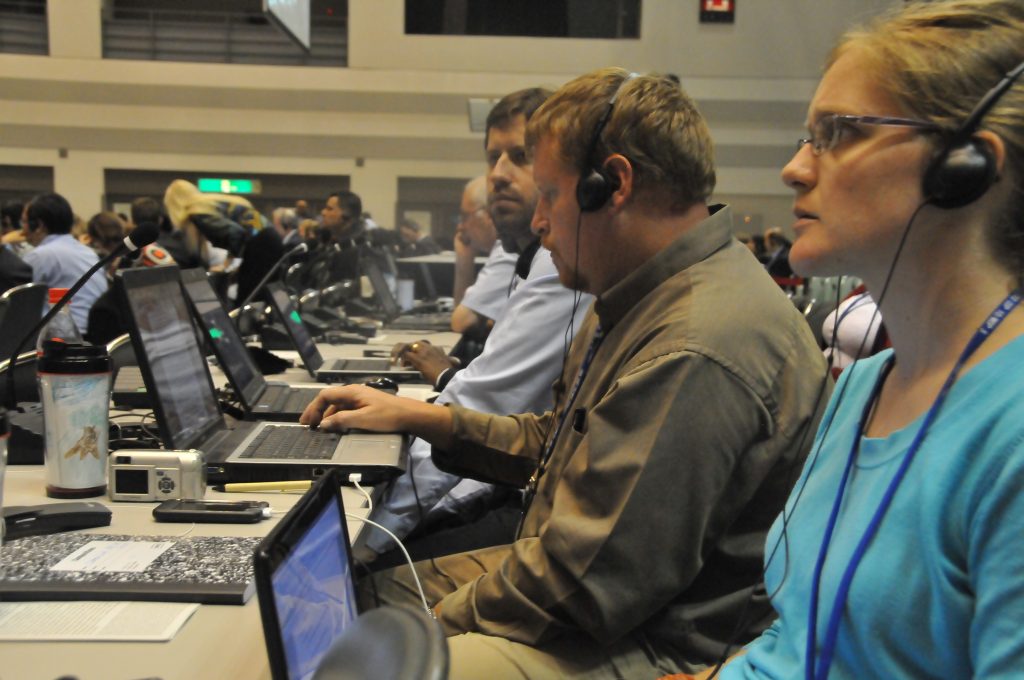



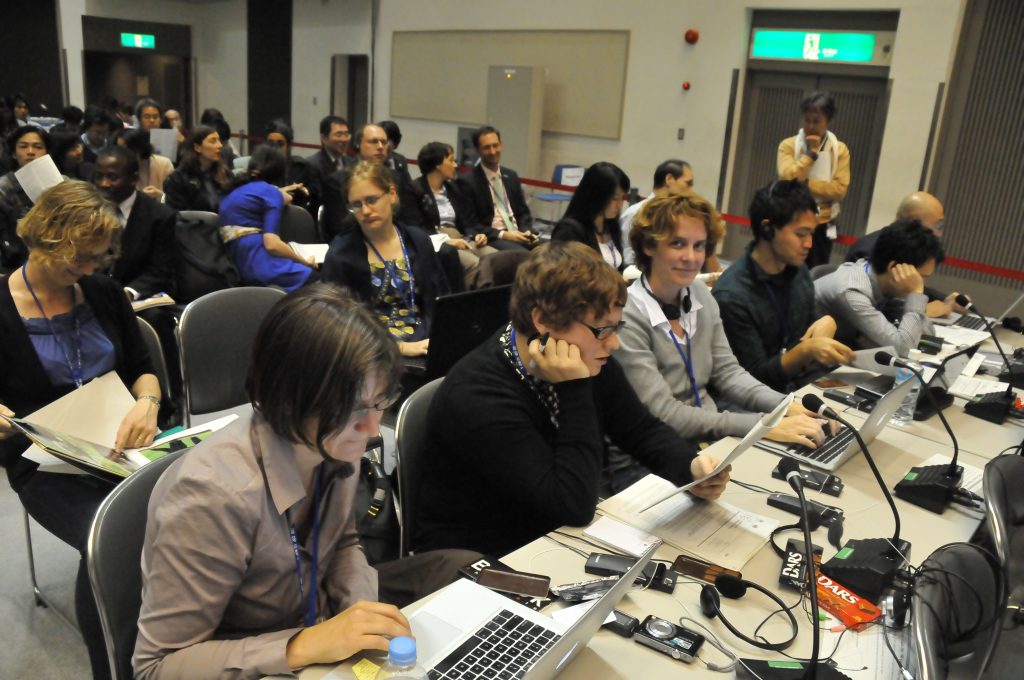
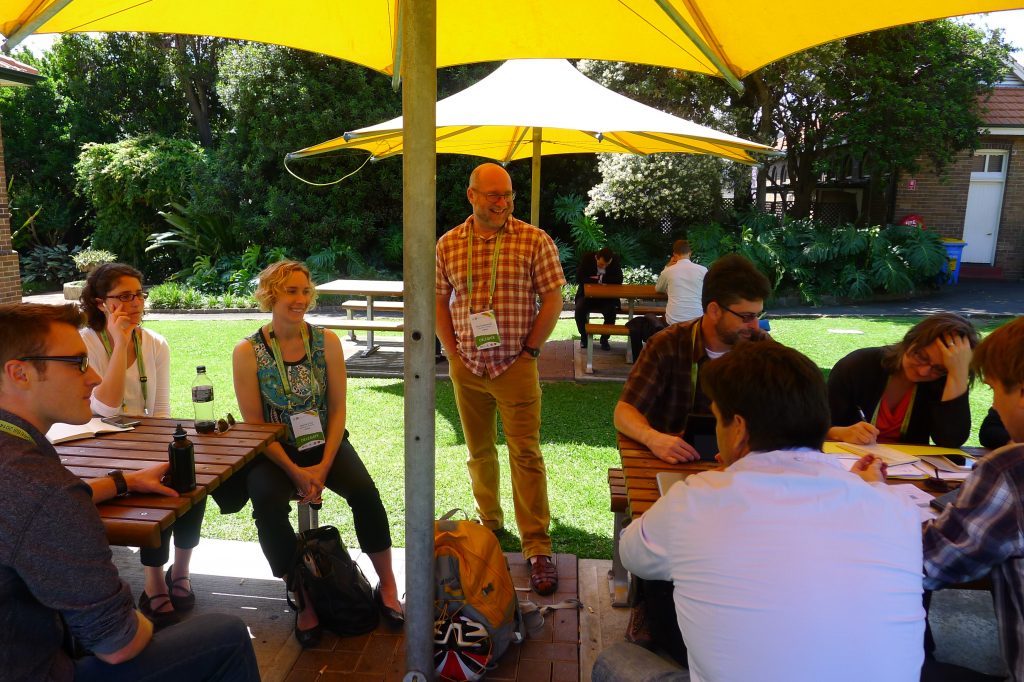

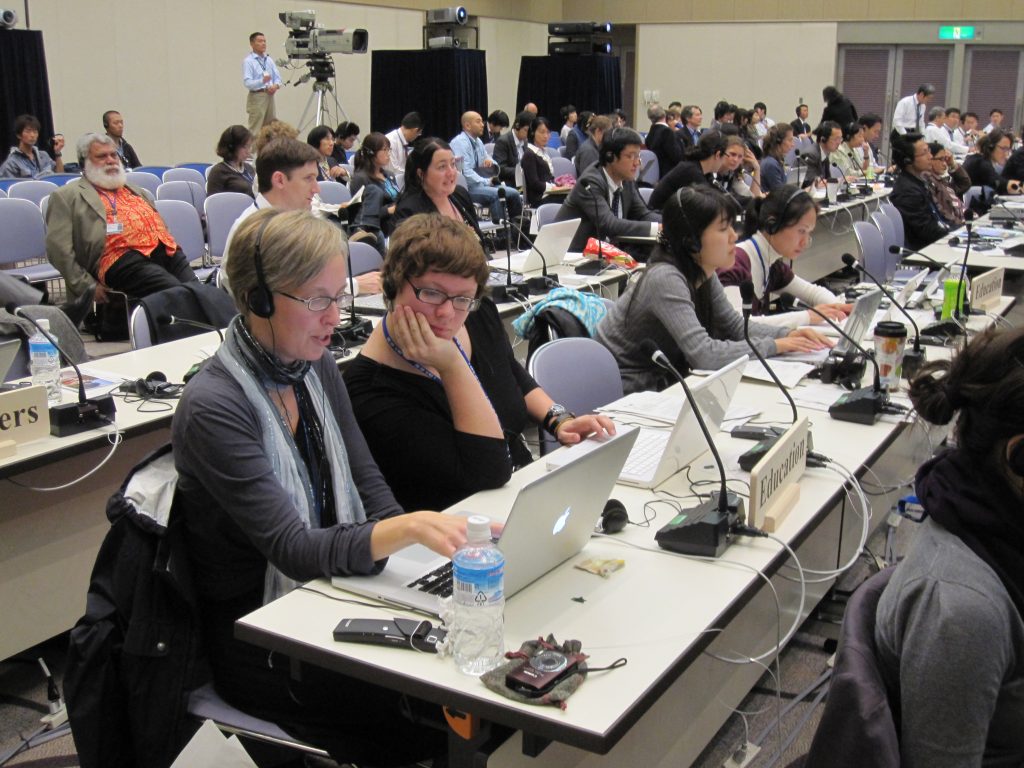
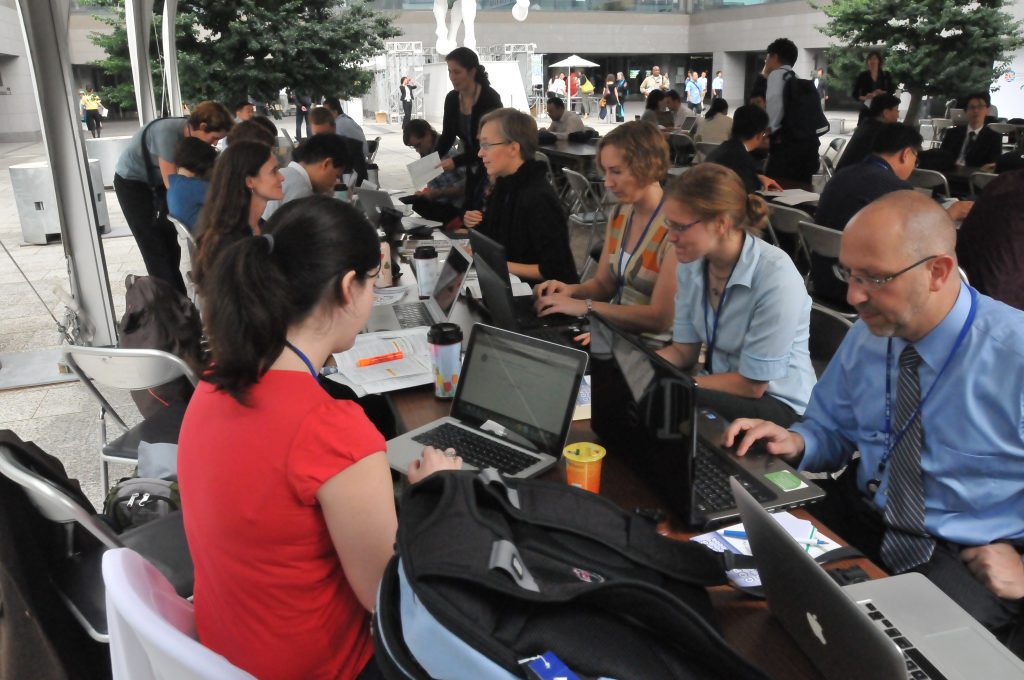

Current Project Leads
Dr. Lisa M. Campbell
Dr. Lisa M. Campbell is the Rachel Carson Distinguished Professor of Marine Affairs and Policy, in the Nicholas School of Environment, Duke University. Her research is focused on oceans governance broadly, and in relation to diverse issues including: conservation targets, marine protected areas, small scale fisheries, and marine spatial planning. She draws on theory from political ecology, political economy, and science and technology studies to study how science and other values, and state and non-state actors, inform governance processes and outcomes across geographic and socio-political scales. She is more generally interested in innovation in research methods and has published on participatory research, collaborative research, inter-disciplinary research, field work, and research ethics. She directed the Marine Science and Conservation PhD program for 10 years, and in 2006 she received Duke University Graduate School’s award for excellence in graduate student mentoring.
Dr. Catherine Corson
Dr. Catherine Corson is the Miller Worley Associate Professor of Environmental Studies at Mount Holyoke College. As a political ecologist, her research focuses broadly on the rise of market-based environmentalism, popular resistance to it, struggles over land and resource rights, and associated shifts in environmental governance. She has used ethnography to explore questions of power, knowledge, and justice from field sites in Zimbabwe, Australia, Madagascar, and the United States to international conferences. Her book, Corridors of Power, and associated publications, offers a multi-sited institutional ethnography of how various state and non-state actors have negotiated U.S. environmental foreign aid to Madagascar across local, national and international scales. As an associate professor at a women’s liberal arts college, she maintains a strong commitment to both interdisciplinary collaboration and to mentoring female undergraduate and graduate students. Prior to receiving her PhD from the University of California at Berkeley, Corson spent a decade as an environment and development policy analyst, based in Washington, D.C. Her current research explores technology, capitalism and decolonization, including a Mellon Foundation funded project entitled, Access, Trust, and Governance in the Green Cryptocurrency Revolution, which examines blockchain technology as a means to foster community economies and secure sustainable community chains.
Dr. Noella Gray
Dr. Noella Gray is an Associate Professor in the Department of Geography, Environment and Geomatics at the University of Guelph. A political ecologist, her research examines the politics of marine conservation and governance across scales. Her recent work focuses on knowledge conflicts in conservation governance. She examines how different forms of knowledge (science, local knowledge, Indigenous knowledge) are produced, legitimized, and mobilized in relation to particular conservation interventions, such as international agreements, marine protected areas, and volunteer tourism initiatives. As the leader of the international research stream of the Conservation through Reconciliation Partnership, funded by the Social Sciences and Humanities Research Council of Canada, she is working with Indigenous partners to examine the decolonization of international conservation governance. Dr. Gray has a PhD in Environment from Duke University, a MA in Geography from the University of Western Ontario, and a BSc in Environment from McGill University. She also serves as an editor for Conservation & Society and as Graduate Coordinator in her department.
Dr. Rebecca Gruby
Dr. Rebecca Gruby is an Associate Professor in the Department of Human Dimensions of Natural Resources at Colorado State University. Rebecca has been a CEE collaborator since 2010. She is an environmental governance scholar who engages diverse literatures across human geography, political science, and applied conservation to study the emergence, form, and function of ocean governance. Her most recent work focuses in particular on the roles and impacts of non-state actors – e.g., communities, NGOs, philanthropic foundations – in marine conservation. Her geographic interests lie mainly in Oceania, where she has been working for the past 10 years on topics spanning marine protected areas, small-scale fisheries, marine ecosystem-based management, and ocean philanthropy. In addition to CEE, Rebecca engages diverse social science research methodologies including qualitative comparative analysis, Q methodology, and knowledge co-production. In all of her work, she is committed to advancing socially just transformations to sustainability. Rebecca holds a PhD in Environmental Governance from the Duke University Marine Lab and a B.S. in Natural Resource Conservation from the University of Florida. Between 2006-2008, she worked as a Research Associate at the Environmental Law Institute.
Dr. Shannon Hagerman
Dr. Shannon Hagerman is an Associate Professor in the Department of Forest Resources Management and the Principal Investigator of the Social-Ecological Systems Research Group. Her research examines the diverse ways that individuals know, value and interact with the non-human environment, the social and political processes by which these perspectives and experiences are (or aren’t) incorporated into policy, and the impacts of policy as it shapes management and practice in particular locales.
As an interdisciplinary social scientist (and one committed to empiricism in its diverse forms), her work is grounded in analytical perspectives ranging from socio-cultural risk perception; environmental governance; discourse and the environment; politics of knowledge; and judgement and decision making. In addition to advancing knowledge about society and natural resources in these domains, her work seeks to provide insights for meaningfully and ethically addressing societal challenges including climate change and biodiversity loss.
Hagerman teaches human dimensions of conservation and qualitative research inquiry. Finally, she is incredibly proud to have been awarded the Killam Teaching Prize in 2018.
Dr. Peter Wilshusen
Dr. Peter Wilshusen is a Professor of Environmental Studies and Sciences at Bucknell University. His research draws upon political ecology and related approaches to examine international conservation governance with a focus on the dynamic and relational processes through which economistic conservation governance arrangements are co-produced by private, public, non-profit, and intergovernmental actors. This work builds upon more than two decades of research centered on the politics of international biodiversity conservation activities, including the 2003 edited volume Contested Nature. From 1998-2010, Dr. Wilshusen conducted ethnographic research on community forestry organizations in southeastern Mexico in the wake of neoliberal policy shifts. His interests in international conservation and sustainable development stems from more than a decade working as a consultant on biodiversity conservation projects funded and administered by the Global Environment Facility (GEF), the United States Agency for International Development (USAID), and the United Nations Development Programme (UNDP) in various countries such as Colombia, Panama, Guatemala, Belize, Mexico, and Equatorial Guinea.
Dr. Wilshusen completed his PhD at the University of Michigan’s School of Natural Resources and the Environment following a Master of Forest Science (MFS) degree at the Yale School of Forestry and Environmental Studies. He holds a BA with Honors in Environmental Studies from the University of Vermont. In addition to his faculty position, Dr Wilshusen served as Executive Director of Bucknell’s Center for Sustainability and the Environment from 2012-2016. He held the David and Patricia Ekedahl Professorship in Environmental Studies from 2010-2015.
Photo by Nott Peera on Unsplash



